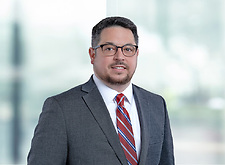More specifically, the Ninth Circuit held that a “plaintiff need not plead an ‘objective falsehood’ to state a claim under the FCA, and . . . a false certification of medical necessity can be material” and sufficient to state a claim under the False Claims Act. Winter ex rel. United States v. Gardens Regional Hospital and Medical Center, Inc., 953 F.3d 1108 (9th Cir. 2020).
The relator in Winter is a former hospital executive. Her complaint alleges that the defendants falsely certified to Medicare that certain inpatient hospitalizations were medically necessary. As evidence for the lack of necessity, she pointed to the patients’ medical records and the hospital’s admissions criteria. The district court held that, to establish an FCA violation, the plaintiff must show that the defendant knowingly made an objectively false representation. Because a subjective medical opinion cannot be objectively false, the court reasoned, the complaint was deficient.
The Ninth Circuit rejected the idea that the FCA requires objective falsity. Instead, a “doctor’s clinical opinion must be judged under the same standard as any other representation. A doctor, like anyone else, can express an opinion that he knows to be false, or that he makes in reckless disregard of its truth or falsity.” And since the relator alleged more than just a reasonable difference of opinion, the Ninth Circuit found her allegations of false medical-necessity certifications sufficient to survive a motion to dismiss.
The Winter decision bolsters FCA cases based on false certifications of medical necessity, but the Ninth Circuit’s view is not unanimous. Circuit splits of this sort illustrate the importance of retaining counsel familiar with jurisdictional variations in FCA enforcement.
Hodgson Russ LLP has vast experience both defending allegations of health care fraud and representing whistleblowers exposing it.

